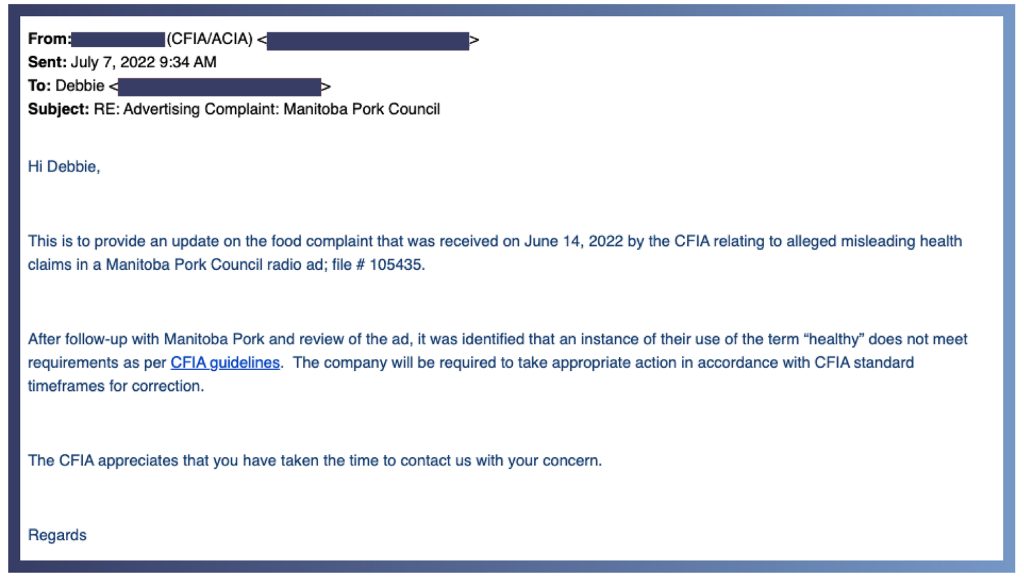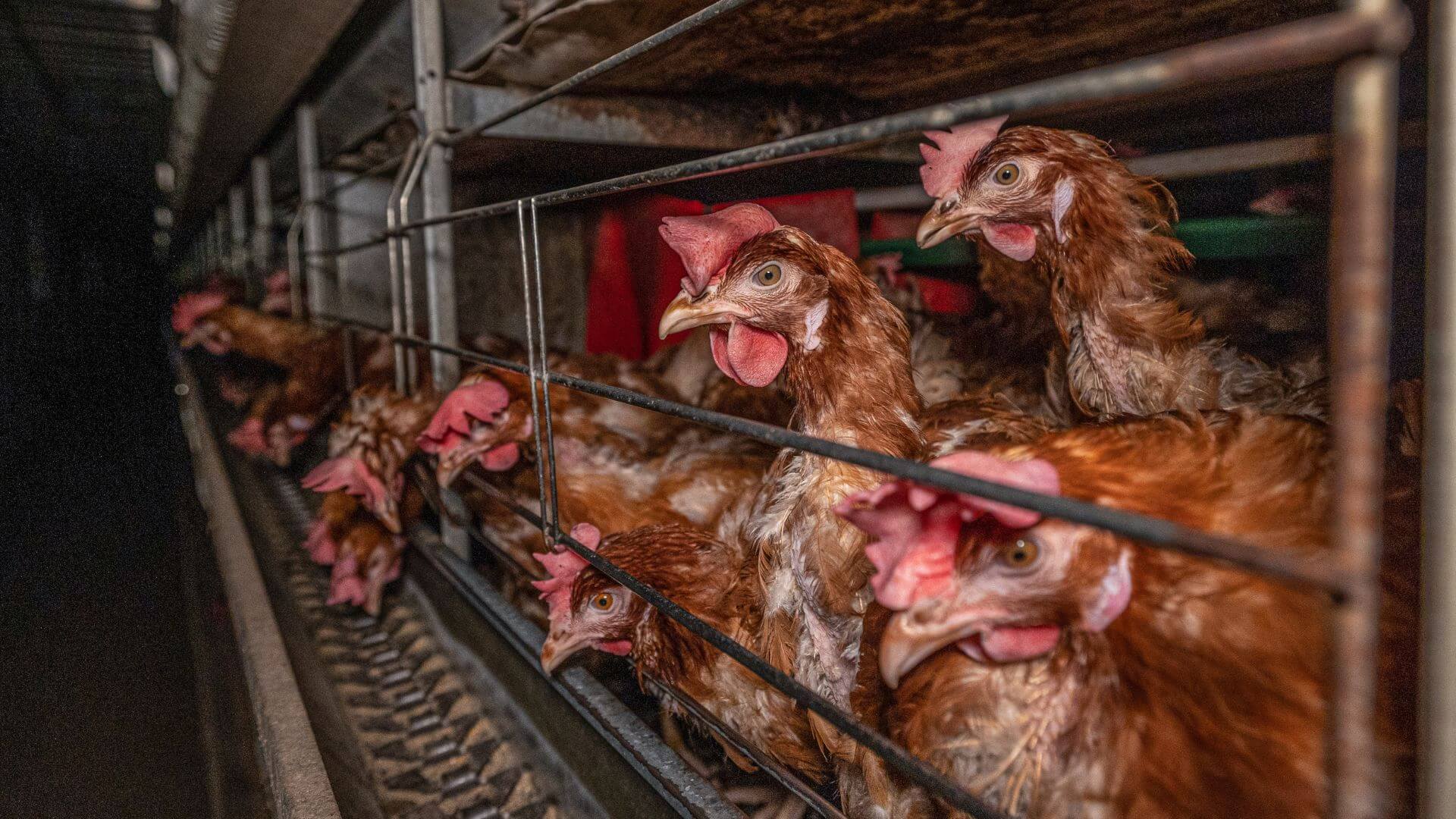Federal authorities are cracking down on Manitoba Pork over misleading radio ads that falsely claim pork is healthy. The ads, which have been running on radio broadcasts of Winnipeg Goldeyes baseball games, claimed that “thick, juicy porkchops”, “tasty pork tenderloin,” and “crazy good pork burgers” are a “healthy and affordable protein”.
The problem? It’s illegal to make false health claims to sell food products to consumers. According to Canadian Food Inspection Agency (“CFIA”) guidelines, the word “healthy” refers to the healthy eating patterns recommended by Canada’s Food Guide, and describing a food as “healthy” when it doesn’t meet the Food Guide recommendations can be considered misleading.
Pork products aren’t recommended in the Food Guide, which states that Canadians should choose plant-based protein most often, choose only lean red meats, and avoid saturated fat altogether. Pork is high in saturated fat, with a whopping 5 grams per 100 gram serving. Other pork products, such as bacon, are much higher, clocking in at 14 grams of saturated fat per 100 gram serving. (In contrast, plant-based proteins like chickpeas contain only 0.6 grams of saturated fat per 100 gram serving.)

The World Health Organization’s International Agency for Research on Cancer has also said that red meat, including pork, is a probable human carcinogen.
This move comes after Animal Justice Academy member Debbie Wall reported the radio ads to the CFIA. Ms. Wall tenaciously followed up with the agency to make sure her concerns were being addressed, and that Manitoba Pork not be allowed to trick the public into buying unhealthy pork products.
On June 23, 2022 the CFIA contacted Ms. Wall to confirm that they are taking enforcement action against Manitoba Pork, and the company will be required to take appropriate corrective steps.

Animal Justice applauds Debbie Wall for her strong advocacy on behalf of animals. Animal Justice files regular false advertising complaints against companies that mislead consumers about health or animal welfare claims, duping people into buying products that they would otherwise avoid. Last year, McDonald’s took down billboards that claimed its Quarter Pounder burger was “sustainable” after an Animal Justice complaint prompted an investigation by federal authorities.
To learn more about how you can best advocate for animals, including by filing complaints with authorities, consider joining the Animal Justice Academy—a free, six-week online training course offered by Animal Justice.







